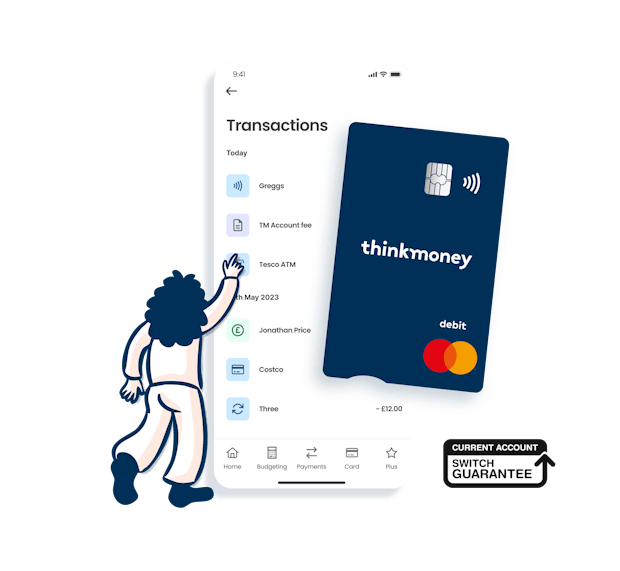
Seven ways to improve your credit score
31st Jan 2023
Laurie
Think of your credit score as a financial gateway. If a lender, landlord, insurance or mortgage provider sees a high credit score, they’re going to view you as a responsible borrower 👌
Put simply, that means they’ll be more confident you’ll pay debts back on time and in full.
The higher your credit score ⏫ the more access you have to lower interest rates and better loan terms, easier approval for credit cards, mortgages, and other financial products, and even improved rental and insurance rates.
Read on to find out how you can improve your credit score to help you reach your financial goals.
How can I check my credit history?
First things first. If you want to improve your credit score, make sure you know what your rating currently is. You can check your credit history by signing up for a free service like CredAbility. After filling out a few details, you’ll be able to see:
- Your credit score
- What your score was in the past
- How much credit you’ve taken out
The higher the number on your credit score, the better your rating is.
💡 What’s classed as a good credit score can depend on the service you are using. For example, Experian’s PLUS score ranges from 330 – 830, whereas TransUnion’s score ranges from 300 - 850. So, this should be taken into consideration when calculating your score.

How can I improve my credit score?
So, you’ve looked at your credit score and it’s not quite where you want it to be 😔 The good news is that there are plenty of way you can start to improve it!
The key is to show banks and lenders that you can manage your money well and they can rely on you pay back debt 👇
1. Pay bills on time
Make sure you’re paying bills on time, or before the due date, and paying the agreed amount each month. This will show that you can manage your money well. You may benefit from having a current account that helps you along the way.
2. Keep debt low
Being in debt is one of the biggest factors that affects your rating. Setting up repayment plans to help you get your debt down or to the minimum amount possible is a big step to building your credit score.
3. Only open new accounts when you need them
You might be managing multiple accounts, for example, a current account and a savings account. But having too many open, especially if you don’t use or need them, can negatively affect your credit score.
4. Don’t apply for too much credit
Every time you apply for credit, your credit history is checked, which will leave a mark on your report. If you apply for too much credit in a short space of time, this can impact your credit score.

5. Keep your credit utilisation low
Your credit utilisation is the percentage you use of your credit limit. The lower it is, the better. This basically means, don’t max out your credit cards. Try to stay at least 50% below your limit, preferably 25%. For example, if you have a limit of £2,000 on your credit card, try not to borrow more than £1,000.
6. Make sure your details are correct on credit reports
If your details are correct, then your credit score will be too. Making sure all your details are accurate and up to date will provide a more accurate rating.
7. Register on the electoral roll
If you can, prove where you live by registering your address on the electoral role. If you’re living with your parents or you’re in shared housing or accommodation, you can still register your address.
How do you build credit without a credit score?
If you’ve never taken out credit before and you don’t have a credit score, don’t worry 🙅♂️ There are ways you can start building your score from scratch, including:
-
Opening a current account
-
Getting on the electoral roll
-
Set up Direct Debits and standing orders for your bills.
Read more 👉 how to build a credit score from scratch.
How long does it take to improve your credit score?
Building your credit score can take time, so it won’t happen straight away. It usually depends on how low your score is to begin with and what’s causing it. If you follow the guidelines, you could start seeing an improvement in a few months.
If managing your finances isn’t your forte and you need a helping hand taking control, why not choose a current account that helps you budget. The thinkmoney Current Account allows you to split your bills and disposable income, so you can make sure all bills are paid on time 🙌 When you’re paying bills on time, every time, your credit score could start to improve!

Like we said right at the start, having a better credit rating can open up a lot of financial opportunities. If you’ve got a good credit score, you’ll find it a lot easier to get accepted for new credit on loans, mortgages, and credit cards.
As long as you keep up with your payments, your score won’t suffer, and in the long run, it will keep improving. However, you should only ever take on monthly repayments that you can comfortably afford.
< Back to articles
